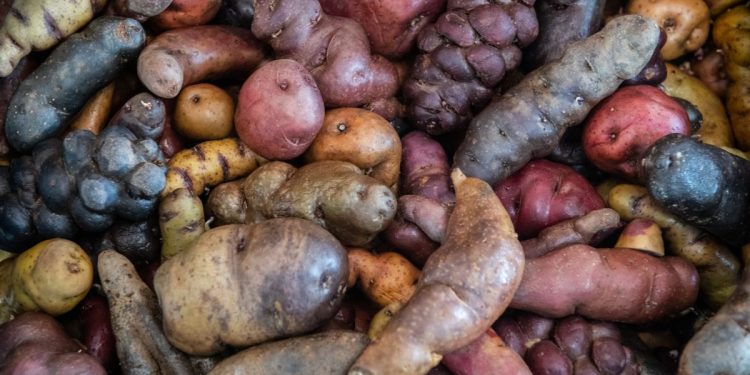Potatoes are one of the most important food crops in the world. They are an important source of carbohydrates, vitamins, and minerals, and are a staple food in many countries. The history of potato cultivation is long and rich, spanning centuries and continents.
Potatoes were first domesticated in the Andes Mountains of South America around 7,000 years ago. The indigenous peoples of the region cultivated and consumed a wide variety of potato species, each adapted to different altitudes, climates, and soil conditions. They also developed sophisticated methods for preserving potatoes, such as freeze-drying and dehydration, which allowed them to store the crop for long periods of time.
The potato made its way to Europe in the 16th century, after the Spanish conquest of the Inca Empire. At first, Europeans were skeptical of the tuber, which they regarded as a strange and unappetizing food. However, as the potato was introduced to new regions and adapted to new growing conditions, its popularity grew. It soon became a staple food in many parts of Europe, and played a crucial role in feeding the continent’s growing population.
The potato’s impact on history is difficult to overstate. In the 19th century, a series of potato crop failures in Ireland led to a devastating famine that killed over a million people and forced millions more to emigrate. The famine had profound social, political, and economic consequences, and is widely regarded as one of the defining events of Irish history.
Today, potatoes are grown in nearly every country in the world, from the high-altitude plateaus of the Andes to the fertile plains of Europe, Asia, and Africa. They are an important crop for small farmers and large agribusinesses alike, and are used in a wide variety of dishes, from mashed potatoes and french fries to potato chips and vodka.
Despite their ubiquity, however, potatoes face a number of challenges in the modern world. Climate change, disease, and pests are all threats to potato production, and can have devastating consequences for farmers and consumers alike. As such, there is an ongoing need for research and innovation in the field of potato cultivation, in order to ensure that this important crop continues to play a vital role in the world’s food supply.
In conclusion, the history of potato cultivation is a fascinating and complex story that spans continents and millennia. From its origins in the Andes to its role in modern agriculture, the potato has had a profound impact on human society and continues to be an important crop today. As we move forward, it is important to recognize the challenges facing potato production and work to ensure that this vital crop remains a cornerstone of the world’s food supply.





